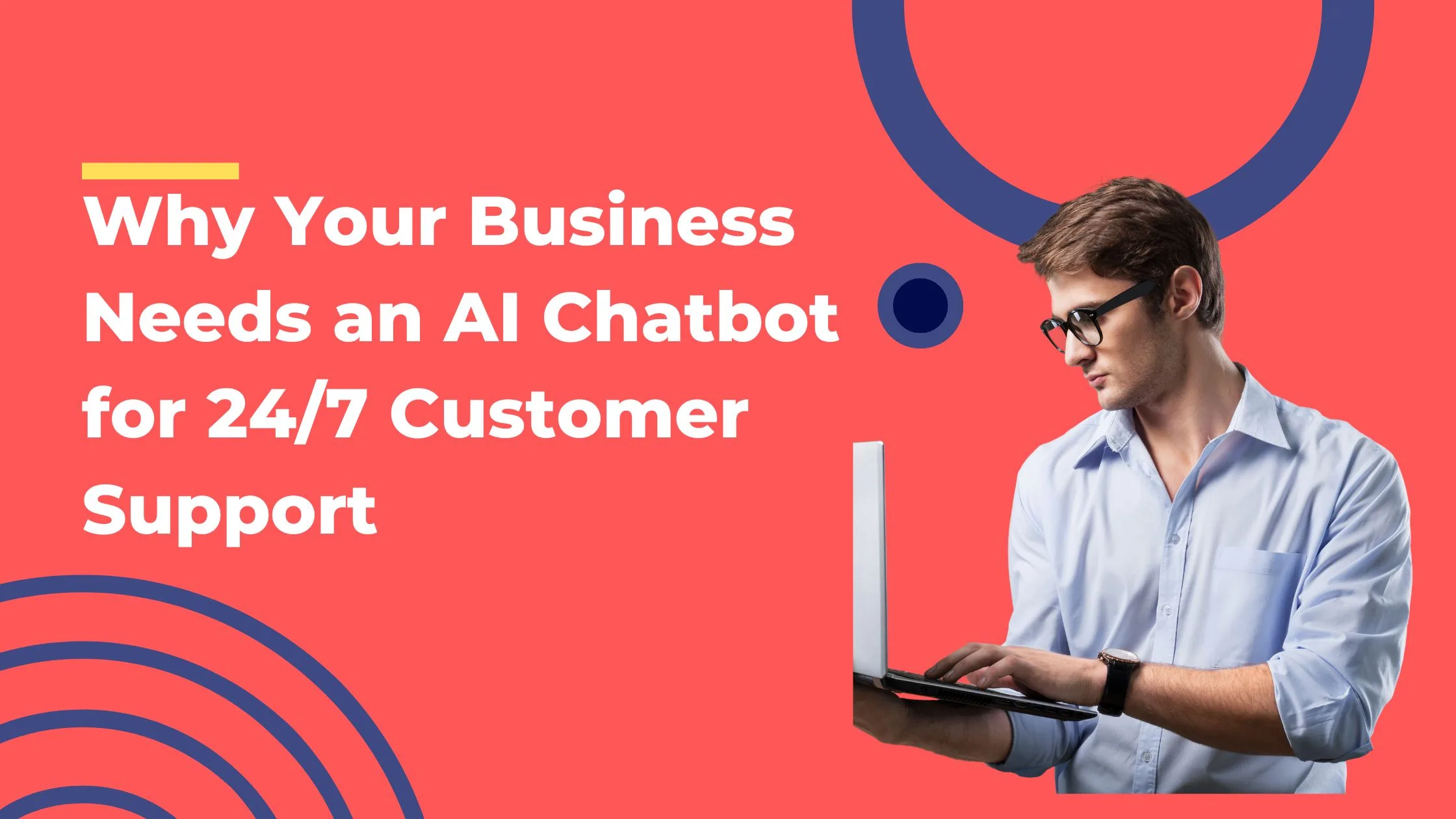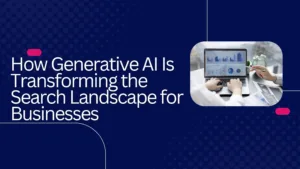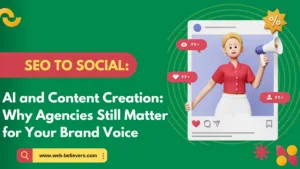Today’s consumers expect immediate answers—whether it’s a late-night query about pricing, an urgent service issue, or a simple question about operating hours. If your business isn’t available when they need help, chances are they’ll turn to a competitor who is.
Customer satisfaction is closely tied to how long users wait for support. Delays often create frustration and lead to negative perceptions of service. According to Aircall, these are some of the most common complaints related to poor customer service:
- 30%: Long wait times
- 25%: Requiring multiple contacts to resolve an issue
- 17%: Having to repeat the same information
- 16%: Interactions with rude or unprofessional staff
- 12%: Support teams lacking product or service knowledge
Among these, long wait times stand out as the leading cause of customer dissatisfaction. AI chatbots are built to tackle this problem by providing quick, round-the-clock assistance.
AI chatbots ensure that no customer inquiry goes unanswered, even outside of business hours. They can:
- Schedule appointments
- Process support requests
- Respond to general inquiries
They also address common customer pain points such as delayed responses, repetitive conversations, and lack of expertise.
If you’re still unsure about adopting AI in your customer support strategy, this article breaks down why chatbots can significantly enhance customer engagement and business growth.
What Is an AI Chatbot, Really?
An AI chatbot is a smart virtual assistant designed to engage with users in real time by using artificial intelligence and machine learning.
Unlike traditional chat widgets that depend on pre-written scripts, AI-powered chatbots understand user intent, analyze input, and deliver personalized responses that align with individual customer needs, improving engagement and satisfaction.
These chatbots can be seamlessly integrated into your website, mobile applications, and messaging platforms such as WhatsApp and Facebook Messenger, making support accessible across multiple channels.
There are two primary types of web chat systems:
1. Live Chat
Live chat enables real-time, one-on-one conversations between customers and support agents via your site or app. It’s best suited for addressing complex issues and providing thoughtful, human-driven advice.
This method showcases your brand’s attentiveness to customer concerns and is ideal when emotional intelligence and personal judgment are needed.
Core advantages of live chat include:
- Real-Time Human Interaction: A live person can respond immediately, recognizing tone, emotion, and context.
- Sophisticated Problem Solving: Human agents can think critically and provide solutions that go beyond AI capabilities.
- Tailored Customer Service: Agents remember previous interactions, use customer names, and build rapport, creating trust and loyalty.
- Sales Opportunities: Live agents can recommend products based on real-time conversations, increasing upsell and cross-sell potential.
- Ideal for Urgent Cases: Complex concerns like billing, tech glitches, or order issues benefit from human involvement.
Still, live chat has constraints — it’s tied to agent availability and business hours. To bridge this gap, AI chatbots manage up to 80% of repetitive questions and transfer more complex issues to live agents when needed (IBM, 2025).
2. AI Chatbots
AI chatbots represent a webchat solution powered by artificial intelligence. As outlined earlier, these automated systems use machine learning to engage with customers without human involvement.
Thanks to natural language processing (NLP), AI chatbots can understand user input and deliver contextually accurate responses, enhancing customer interactions and satisfaction.
Top advantages of AI chatbots include:
- Round-the-Clock Support: Unlike human agents, AI-driven systems are always active. They provide instant assistance at any hour, ensuring your business remains responsive to leads and customer needs at all times.
- Instant Response Time: AI chatbots can handle multiple customer queries at once, offering immediate answers without long waits for human support.
- Improved Efficiency and Lower Costs: By managing repetitive tasks—like FAQs, appointment bookings, and order updates—chatbots lighten the load on live agents, cut operational costs, and boost overall productivity.
- Consistent and Reliable Messaging: AI bots deliver uniform, accurate information across all conversations, reducing discrepancies that can occur with different human agents.
- Easily Scalable: Whether facing a handful or thousands of customer conversations, chatbots scale without additional manpower.
- Smooth Transition to Human Support: When a chatbot faces a situation it can’t resolve, it quickly hands the case over to a live agent, ensuring continuity and a better customer experience.
So, which solution is more effective—AI or live chat? The answer lies in combining both. Let AI chatbots manage routine tasks while escalating complex issues to live agents, delivering a well-rounded and scalable support system that elevates customer experience and drives business growth.
Why You Should Consider an AI Chatbot for 24/7 Support
AI chatbots are quickly becoming a vital component of modern customer service. Let’s break down why integrating this technology can give your business a digital edge and keep you ahead of the competition.
1. Round-the-Clock Availability
AI chatbots are always active—no breaks, holidays, or after-hours downtime. They ensure your business remains accessible dayand night.
- Capture inquiries and leads even when your team is offline
- Instantly respond to frequently asked questions
- Keep users engaged until a live agent becomes available
Whether it’s midday or midnight, customers get timely assistance without delay.
2. Cost-Effective Customer Support
Maintaining a large support team can be costly. AI chatbots minimize the need for additional hires while improving service speed and efficiency. They offer a smart solution for businesses aiming to boost ROI without inflating their payroll.
3. Scalable and Efficient
Unlike human agents, AI chatbots can manage thousands of conversations at once without losing effectiveness.
- Handle multiple queries in parallel
- Eliminate long wait times and response queues
- Deliver consistent service regardless of customer volume
4. Personalized Customer Experiences
AI chatbots aren’t limited to generic replies. They use data from user behavior, order history, and past interactions to offer tailored responses that feel more human and relevant.
5. Cross-Platform Integration
Today’s customers interact on multiple platforms. AI chatbots work across your website, Facebook, Instagram, WhatsApp, and more to offer a unified support experience.
- Provide real-time answers across various channels
- Sync with your CRM and support systems
- Deliver seamless, omnichannel service without added teams
6. Instant Help for Repetitive Questions
A large portion of customer interactions are simple and repetitive. Chatbots can instantly resolve these without human help—covering areas like:
- Pricing
- Business hours
- Order status
- Troubleshooting
By automating routine responses, your business can reduce wait times and improve customer satisfaction—while boosting your reputation with fast, consistent service.
How to Get Started With an AI Chatbot
Adding an AI chatbot to your business is more straightforward than it may seem. Here’s a clear, step-by-step guide to help you begin the journey:
Step 1: Define Your Business Objectives
Start by identifying what tasks your chatbot should manage. Common applications include:
- Handling customer support and FAQs
- Scheduling appointments and capturing leads
- Offering product suggestions and assisting with sales
Clarifying your objectives will guide you in selecting the best solution.
Step 2: Select the Right Chatbot Platform
Choose a platform that matches your goals and customer service model. For businesses seeking 24/7 digital support and a balance between automation and human touch, options like Thrive Local’s AI web chat are ideal.
Step 3: Personalize Your Chatbot
Customization helps make the chatbot feel like part of your brand. Tailor its features to include:
- Your brand’s colors, fonts, and logo
- Response tone, language style, and messaging
- Trigger points for when and how it initiates conversations
A personalized chatbot improves customer comfort and engagement.
Step 4: Train Your Chatbot
To perform effectively, your chatbot needs a strong foundation of knowledge. Equip it with:
- Frequently asked questions
- Customer service guides
- Information on your products or services
Keep updating the content to help your chatbot learn and improve with time.
Step 5: Test, Launch, and Refine
Before making it public, simulate interactions to fine-tune responses. Post-launch, monitor performance and gather feedback to make ongoing improvements.
- Analyze chat logs and user behavior
- Spot response gaps and address them
- Use insights to continuously optimize
A well-maintained chatbot will evolve and deliver consistent, high-quality customer support.
Adopt the Latest AI Technology With Web Believers
AI chatbots aren’t just tools for large enterprises anymore — they’ve become essential for businesses of every size. With benefits like 24/7 support, reduced costs, effortless scalability, and cross-platform integration, AI chatbots are transforming how companies interact with their customers.
If your goal is to improve customer service, streamline operations, and increase conversions, now is the time to leverage AI-powered chatbots. At Web Believers, we’re creating advanced AI solutions designed to help businesses respond instantly and engage more effectively with their audiences.




